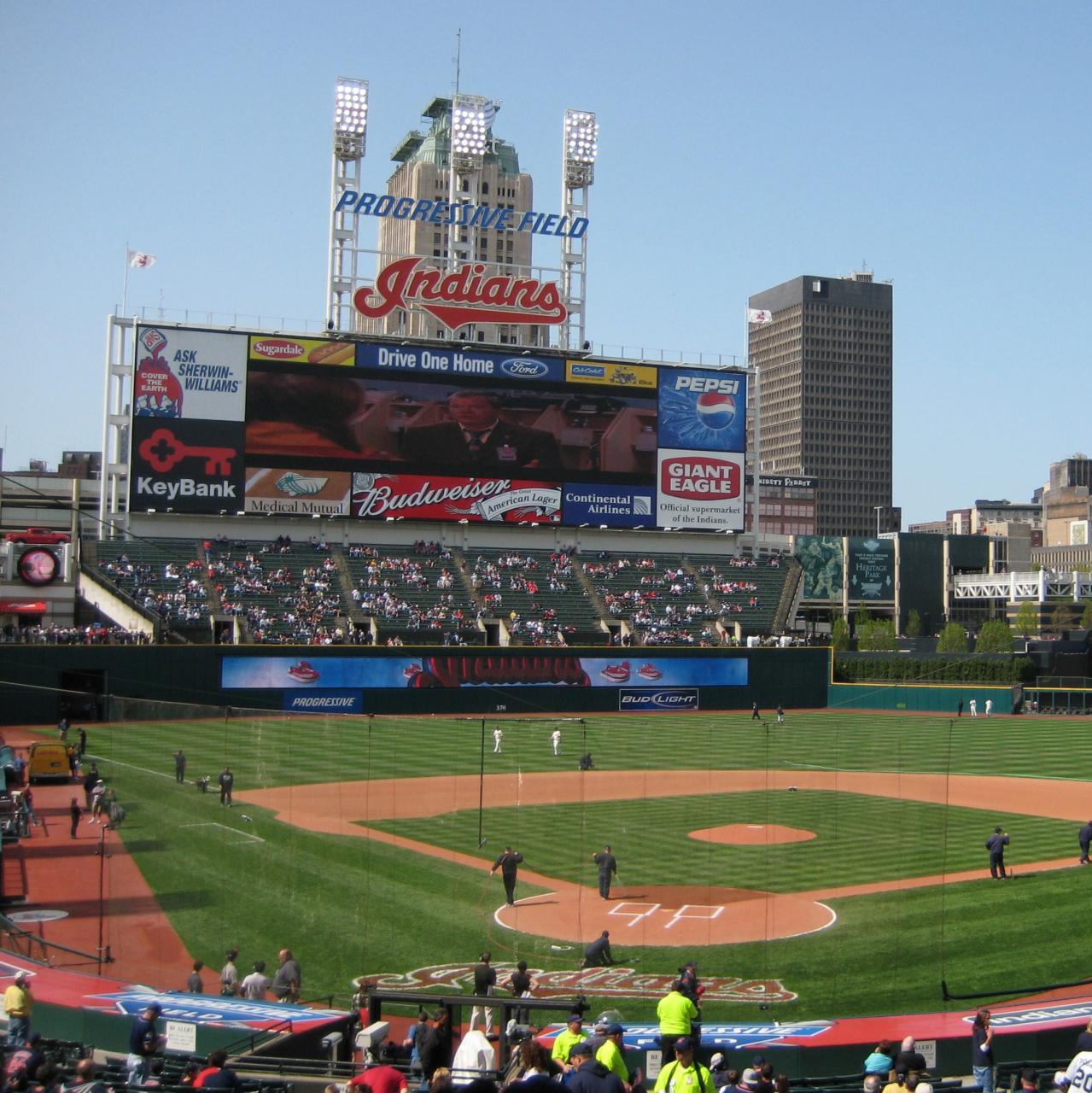April 8, 2016 Updated 4/8/2016
Email Print

DSM Dyneema photo The netting was installed at Progressive Field in Cleveland. The netting has been put in others as well, including historic stadiums like Fenway Park in Boston and Wrigley Field in Chicago.
Major League Baseball stadiums like Fenway Park, Wrigley Field and Progressive Field may be safer for fans this year thanks to new safety netting — which fans probably won’t even notice.
That’s the hope of the product’s manufacturer, at least, which says the secret to the so-called “invisible netting” is the color.
The ultrahigh molecular weight polyethylene weave was developed by Promats Athletics of Salisbury, N.C. It is produced by NET Systems of Bainbridge Island, Wash., using DSM’s Dyneeva fiber.
The product was adopted for use last winter after Major League Baseball recommended extending screens to protect fans from flying bats and balls.
“For fans, the biggest appeal is that Ultra Cross netting made with Black Dyneema is barely noticeable,” said Wayne Oliver, president of Promats Athletics.
The netting has been installed in about 10 major league parks.
“The material has been used in ballparks before. But what is new is that Black Dyneema has black colorant integral to the fiber. In the past it had only been white,” said Patrick Smith, marketing communications manager Americas for DSM Dyneema.
Smith said NET Systems takes the fiber and braids it into continuous filament knotless netting. The results have provided a better sight line than other products.
DSM calls Dyneema “the world’s strongest fiber,” saying that it is 15 times stronger than steel and up to 40 percent stronger than aramid fibers on a weight-for-weight basis. It is durable and able to stand up to ultraviolet light and other conditions.
DSM Dyneema makes its UHMWPE products in Greenville, N.C.; Mesa, Ariz.; and Heerlen, the Netherlands.
NET Systems is short for Nor’Eastern Trawl Systems, a company owned by Nichimo Co. Ltd. of Japan. It was founded in 1978 to provide complete fishing systems, but since then its netting has also been used in aquaculture, agriculture and other markets.
Promats has exclusive access to NET Systems Ultra Cross knotless netting made with Black Dyneema for the U.S. baseball stadium market. The North Carolina company had made custom protective products for thousands of gyms, schools, recreation facilities and stadiums worldwide.



























